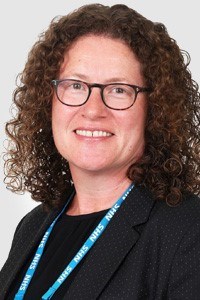Initial health service winter data is already confirming what leaders from across the system have feared for some time, it is set to be the toughest season for the NHS in a generation.
Urgent and emergency care pathways will likely be tested to the limit so urgent community response (UCR) services will play a key role in addressing these challenges, but for them to do so effectively and at scale greater investment is essential.
Nearly 43,000 referrals were made to UCR services in September alone.
Interim Chief Executive
UCR services, which deliver rapid response care in the community within two hours of receiving a referral, are already vital in preventing unnecessary A&E attendance and hospital admissions by getting care to people quickly in their own homes. They form a crucial part of the long-term vision for community care, as well as being a core segment of a wider national focus on delivering more care in the community, linking in with other new and transformational service models like virtual wards.
Despite pressures across the system, according to the latest data, nearly 43,000 referrals were made to UCR services in September alone, and the target to respond to 80% within two hours was met.
A recent briefing by the Community Network, which I chair and is hosted by the NHS Confederation and NHS Providers, highlights some of the ways UCR services are benefitting people across the country and how services are evolving through partnership working, cross-sector collaboration and new technological solutions.
Interventions developed by Hertfordshire Community NHS Trust and partners at East of England Ambulance Service saw a 19% reduction in conveyances from the ambulance services to the East and North Hertfordshire NHS Trust during a pilot week. Ambulance sector colleagues were freed up more quickly, meaning they could cut waiting times for other 999 callers and more people were able to receive treatment at home rather than going into hospital.
With the right support and investment, there is real opportunity to maximise the potential of UCR services by driving up the volume of calls diverted to them, and therefore increasing urgent and emergency care capacity across systems. This is important for patients now given the pressures the health and care system this winter, and it is also part of a vital longer-term shift towards delivering more care in the community.
NHS England has recently increased its focus on UCR, with a new national falls service as part of the winter plans. There are steps we can now take to maximise these services' potential for community providers, for systems and most importantly, for patients and service users.
Systems can also play a key role in unlocking the potential of UCR services by bringing delivery partners together, ensuring sufficient resources are allocated, and driving the standardisation of coverage across the system.
Without increasing the number of staff available new ambitions for how we care for people in the community can only go so far.
Interim Chief Executive
These efforts can also be championed at a national level, with NHS England continuing to support with information governance, working with providers to improve the quality of the national dataset, and embedding the role of the community sector and UCR services in policy.
Underlying all of this is the need for sufficient staff to increase the capacity of UCR services which requires government action to deliver a costed and funded workforce plan for health and care. Without increasing the number of staff available new ambitions for how we care for people in the community can only go so far.
This blog was first published by the National Health Executive.
About the author

